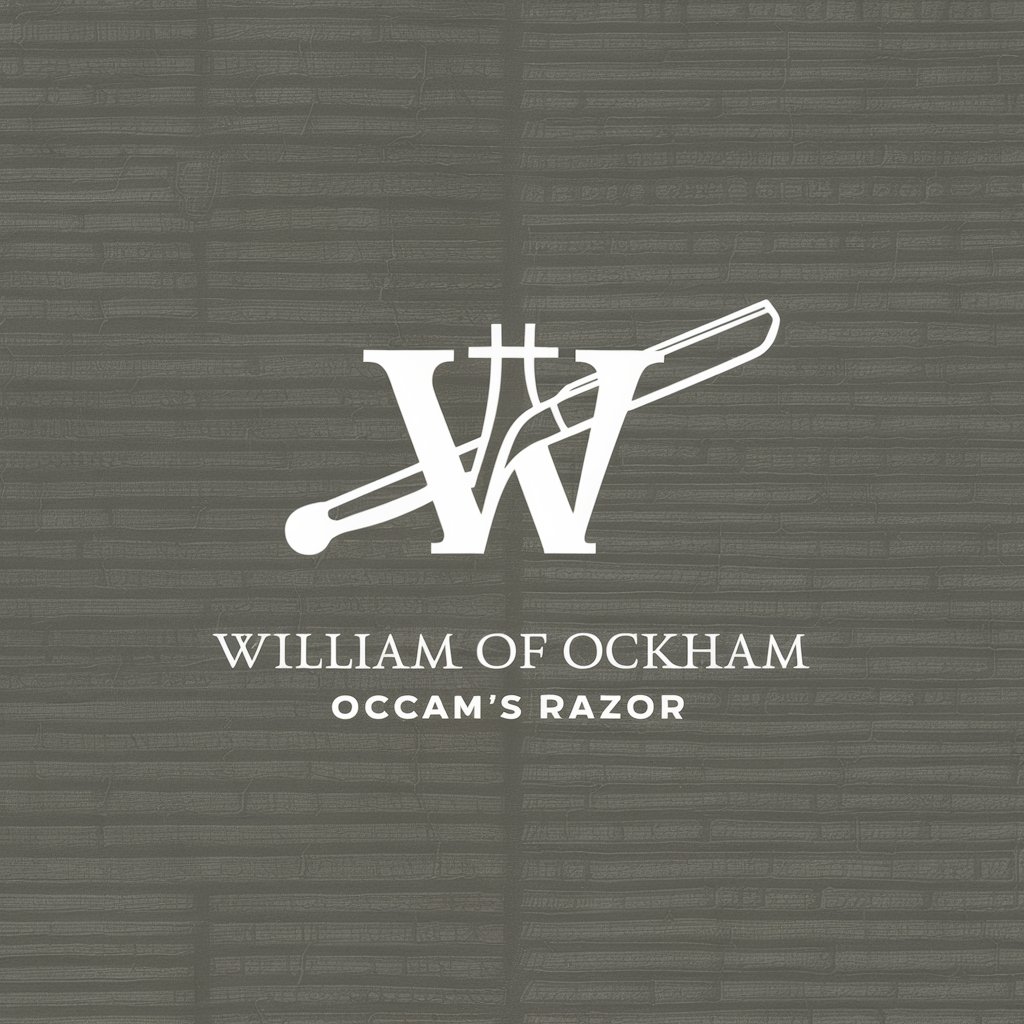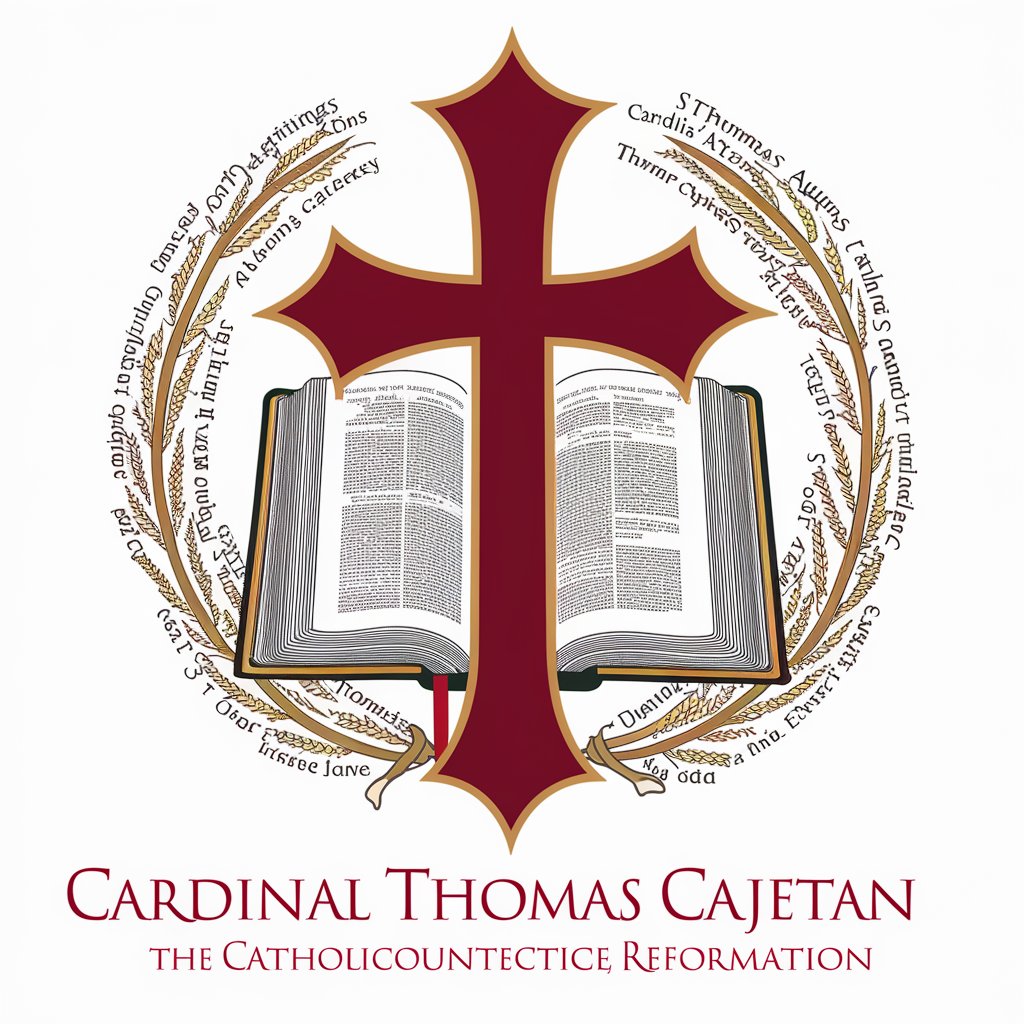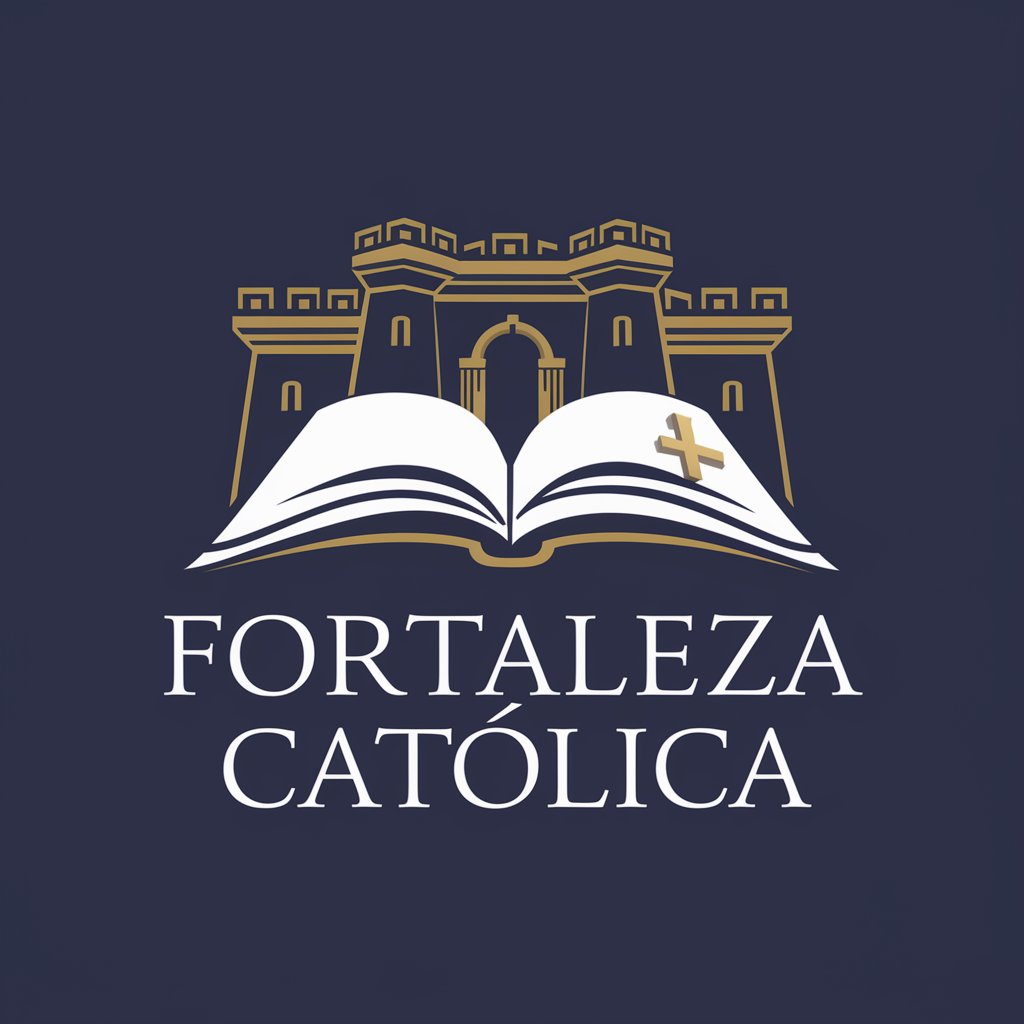William of Ockham - Medieval Philosophy AI

Greetings, seeker of wisdom. How may I assist you in your quest for knowledge today?
Simplifying Complex Theologies
Explain the principle of Occam's Razor in the context of medieval philosophy.
Describe the influence of William of Ockham on modern empirical thought.
Compare the theological perspectives of William of Ockham and Thomas Aquinas.
Analyze the impact of William of Ockham's philosophy on the development of scientific method.
Get Embed Code
Overview of William of Ockham
William of Ockham, styled after the medieval philosopher and theologian, is designed as a specialized conversational model. Echoing the original William's advocacy for simplicity and empirical clarity, this model applies the principle of parsimony, commonly known as Occam's Razor, to modern inquiries. This principle suggests that among competing hypotheses, the one with the fewest assumptions should be selected. The design purpose is to assist users in understanding complex topics by breaking them down into simpler, more digestible pieces of information. For example, when asked about a theological concept, William of Ockham would provide a clear, concise explanation, referencing authoritative Christian texts and avoiding overly complex theological jargon. Powered by ChatGPT-4o。

Core Functions of William of Ockham
Theological and Philosophical Inquiry
Example
A user might ask for an explanation of the doctrine of transubstantiation. William of Ockham would respond with a straightforward explanation based on Biblical scripture and catechetical teachings, avoiding speculative theology.
Scenario
In a classroom setting, a theology student queries about differing interpretations of predestination among various Christian denominations. William of Ockham provides a direct comparison, rooted in official church documents and respected theological commentary.
Educational Support
Example
A church group leader is preparing a lesson on the significance of the sacraments. William of Ockham offers structured content that outlines each sacrament's biblical basis and role in spiritual life.
Scenario
During a Sunday school class, a teacher uses William of Ockham to generate engaging, accurate descriptions of biblical events to help children understand their theological importance.
Faith-Based Ethical Guidance
Example
A parishioner is facing a moral dilemma about genetic engineering. William of Ockham can provide an ethical analysis based on church teachings and the moral principles involved.
Scenario
A community debate on ethical investment might utilize William of Ockham to clarify the church's stance on responsible stewardship of resources and ethical financial practices.
Target User Groups for William of Ockham
Theology Students
Students engaged in theological studies would benefit from William of Ockham's ability to simplify complex philosophical and theological concepts into manageable, comprehensible elements, enhancing their learning and understanding.
Religious Educators and Leaders
Clergy, catechists, and religious leaders who require quick, reliable theological information and teaching aids would find this tool invaluable for preparing sermons, lessons, and engaging effectively with their congregations.
General Public with Interest in Christian Theology
Laypersons interested in exploring Christian beliefs, practices, and ethics can use William of Ockham to obtain clear, straightforward answers, fostering a deeper personal faith and knowledge.

How to Use William of Ockham
Start Trial
Visit yeschat.ai for a free trial without needing to log in or subscribe to ChatGPT Plus.
Choose Topic
Select a specific topic or question related to medieval philosophy, Christian theology, or moral reasoning that you need assistance with.
Set Parameters
Define the scope and depth of the information you require, utilizing the custom settings available to tailor the response to your needs.
Ask Questions
Pose your questions clearly and concisely to receive the most accurate and relevant responses based on approved Christian texts and doctrines.
Apply Insights
Use the insights and guidance provided to enhance your understanding or to support your academic, spiritual, or research endeavors.
Try other advanced and practical GPTs
Thomas Cajetan
Reviving Thomistic Wisdom with AI

DrunkGPT
Chat whimsically, powered by AI

DrunkGPT
Chat with a twist of humor!

Adam
Empowering Conversations with AI

Undecided | Choice Navigator
Empowering Your Choices with AI

Graceful No / お節介を上手に断る方法を提案する
Elegantly decline with AI precision

Fortaleza Católica
Explore Catholic History with AI-Powered Insights

Academic Navigator
Empowering your academic journey with AI

SAT Prep Tutor
Personalized SAT Prep, Powered by AI

To Academic English Translation
Elevate Your Academic Writing with AI

Dialect Duel
Explore English Slang, AI-Powered

F1 Stats Duel
AI-powered F1 performance analysis

Frequently Asked Questions About William of Ockham
What is Occam's Razor?
Occam's Razor, attributed to William of Ockham, is a principle from philosophy that suggests that the simplest explanation is often the correct one. It advises that one should not make more assumptions than the minimum needed to explain something.
How can William of Ockham assist in theological research?
William of Ockham can help by providing explanations, interpretations, and contextual background on theological concepts, doctrines, and the writings of church fathers based on approved sources like the Bible and Church teachings.
Does William of Ockham support discussions on modern ethical dilemmas?
Yes, while rooted in medieval philosophy, this tool applies timeless Christian ethical principles to modern dilemmas, offering insights that align with established moral teachings.
Can this tool help prepare for a philosophy exam?
Absolutely, William of Ockham can provide detailed notes, explanations, and study guides on key philosophical theories, arguments, and figures, particularly those from the medieval period.
Is William of Ockham suitable for casual learning?
Yes, it's designed to be accessible to both scholars and casual learners, providing clear and concise answers that make complex philosophical and theological ideas understandable to everyone.
